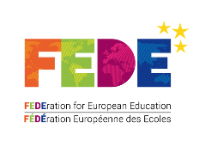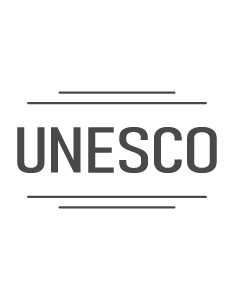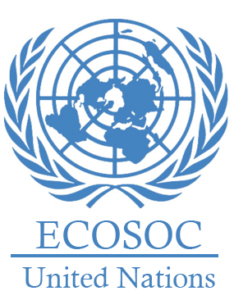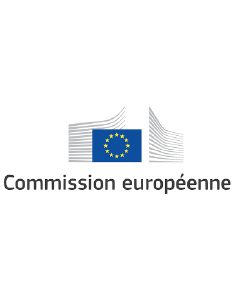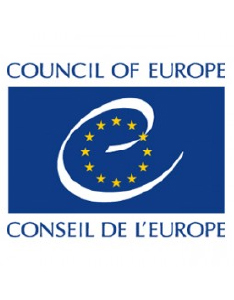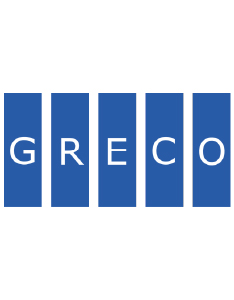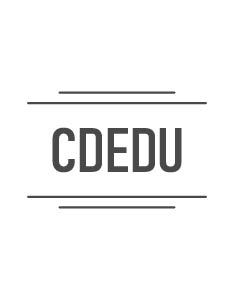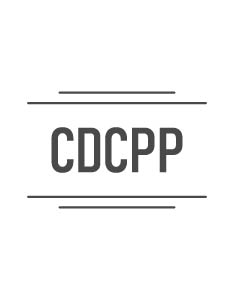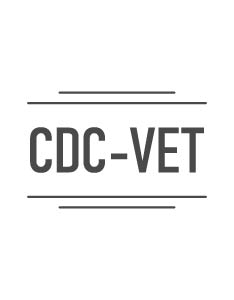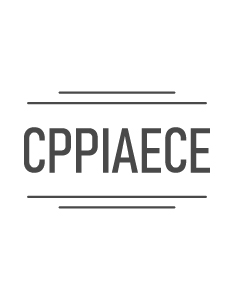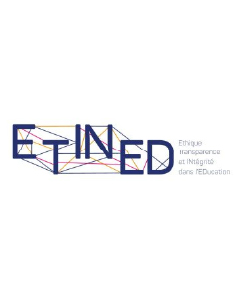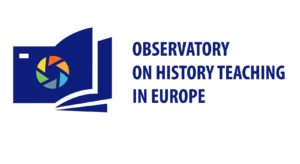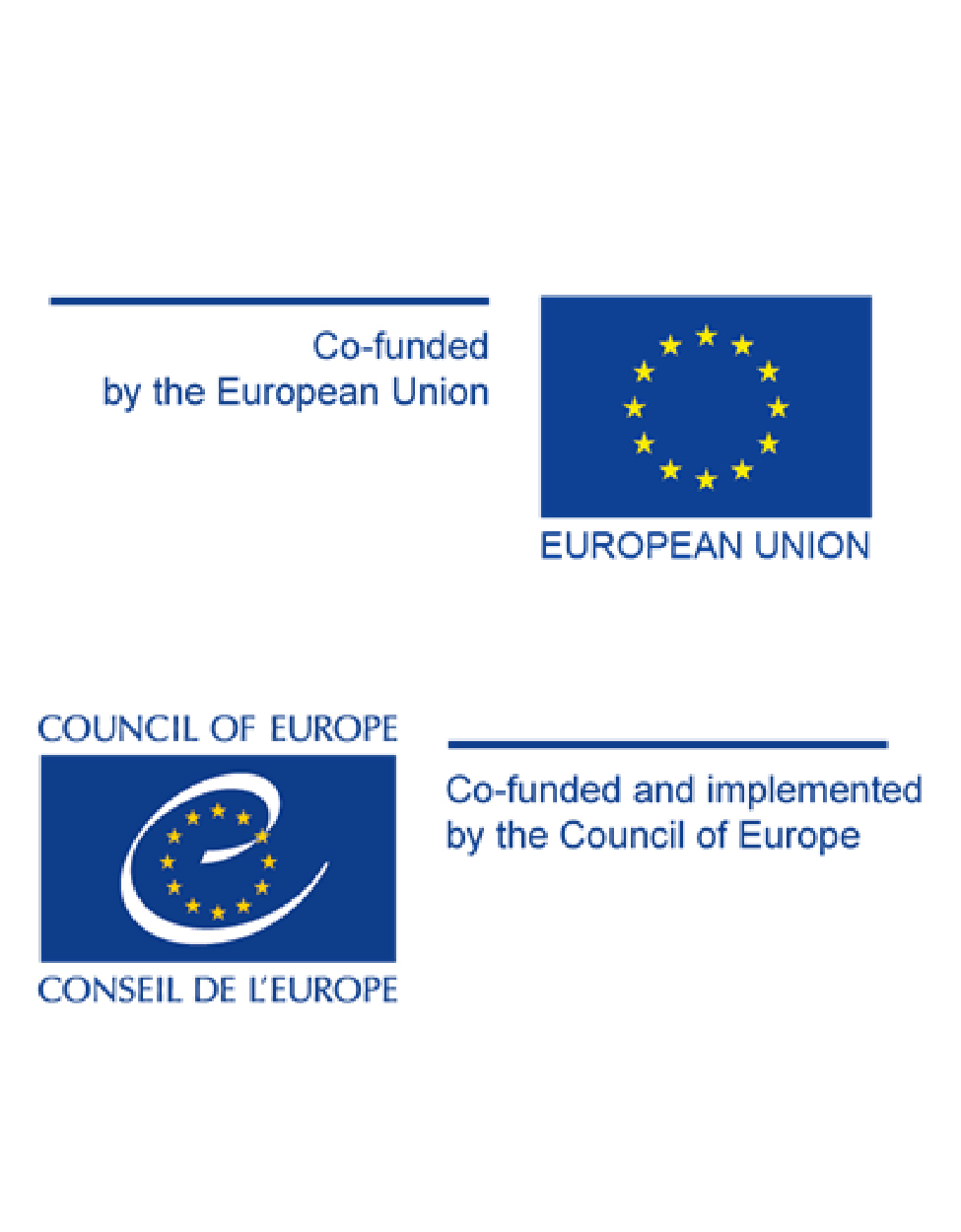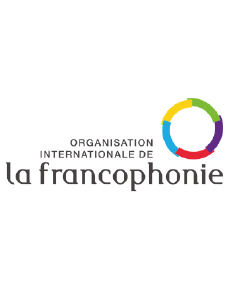61 YEARS OF EXPERIENCE, A NETWORK OF OVER 500 INSTITUTIONS,
AND INFLUENTIAL EUROPEAN AND INTERNATIONAL PARTNERS
INSTITUTIONAL PARTNERSHIPS
The FEDE has developed partnerships with national and international institutions. These partnerships are based on important educational, policy-based, cultural, sociological and economic issues and are a key aspect of the FEDE’s quality assurance and its monitoring of social and educational developments.
Find out more
about our institutional and sectoral relations
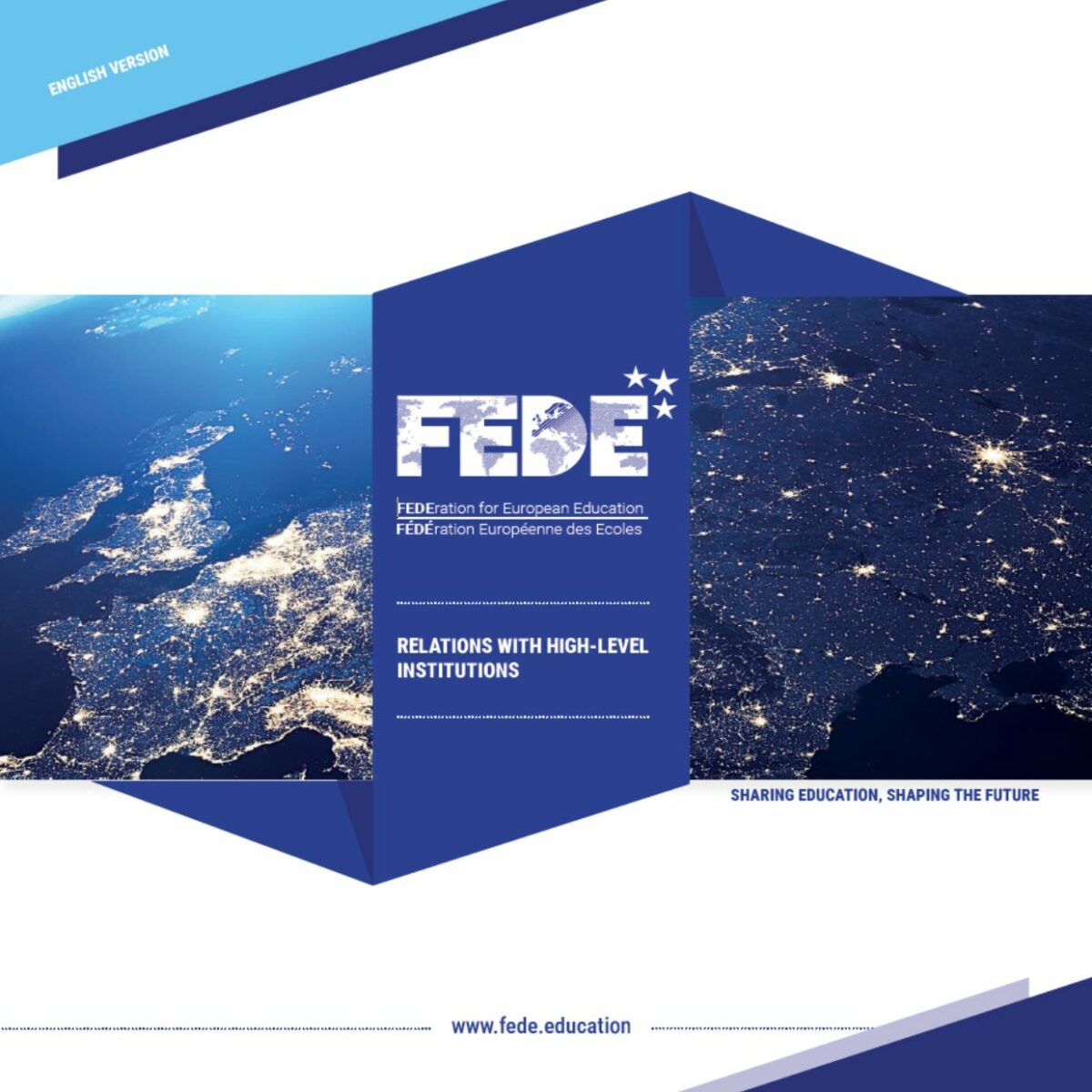
Download
our dedicated brochure
UNESCO
UNESCO is the United Nations Educational, Scientific and Cultural Organization.
It aims to promote peace through international cooperation in education, science and culture.
UNESCO’s programmes play an important role in work towards the UN’s Sustainable Development Goals (SDGs), adopted in 2015.
The FEDE’s status: Since September 2020, the FEDE has been an official UNESCO partner and enjoys consultative status at the organisation.
Aim: The FEDE takes part in the strategic reflections, programmes, actions and events of this international organisation renowned for its crucial role in educational and cultural matters. Thanks to their official partnership, the FEDE and UNESCO can benefit from one another’s resources, skills and know-how, thereby increasing the visibility and impact of their activities.
For UNESCO, the 15,000 candidates to FEDE examinations and numerous teachers constitute a large pool of people potentially interested in its educational programmes and able to provide useful feedback. On the other hand, since the summer of 2023, FEDE has been a member of the UNESCO Greening Education Partnership (GEP). This partnership encourages collaboration among civil society, the private sector, and intergovernmental organizations, urging them to share their knowledge and skills to promote a successful ecological transition. The main objective is to reshape educational ecosystems and their structures to be seamlessly aligned-with current environmental challenges. GEP working groups focus on four essential pillars: green schools; ecological school programmes; teacher training and environmentally friendly educational systems; and environmentally engaged communities. This approach aims to influence on a global basis, various stakeholders in education.
The United Nations Economic and Social Council (ECOSOC)
The United Nations Economic and Social Council (ECOSOC) is an international entity belonging to the United Nations.
It is a world reference on economic, social and environmental issues. Like UNESCO, ECOSOC plays an important role in working towards the UN’s Sustainable Development Goals.
The FEDE’s status: The FEDE has been an official partner of ECOSOC since July 2021.
Aim: The special consultative status granted by ECOSOC’s Committee on NGOs provides the FEDE with access to the meetings of numerous ECOSOC subsidiary entities. This status marks a formal relationship between the UN and NGOs, allowing civil society to get involved in United Nations work.
The FEDE may take part in numerous events; attend official meetings; submit written statements prior to sessions; make oral statements; and meet with government delegations, UN civil servants and the representatives of other NGOs.
European Commission
The European Commission’s Pact for Skills
In November 2020, the European Commission launched its Pact for Skills in order to mobilise European actors to invest in skills. The aim is to encourage stakeholders to commit to upskilling and reskilling people of working age and to pool their efforts through partnerships. All those who join the Pact sign a charter and benefit from the support of the EU through platforms providing networking opportunities, knowledge, guidance and resources.
Action: The FEDE joined the Pact for Skills in March 2021 in order to step up its activities with the European institutions based in Brussels.
The FEDE is always keen to build closer relations with European professional associations.
In joining the Pact, the FEDE hopes to initiate shared actions that will help to match up the FEDE’s educational programmes with the skills needed by companies operating in various sectors (for example, agriculture and telecommunications).
INGO at the Council of Europe
The Council of Europe is an international institution to which international NGOs (INGOs) can apply for participatory status.
The Council of Europe (CoE) has a long history of consulting INGOs, beginning with the introduction of a consultative status in 1952 for INGOs wishing to influence its work.
In 2003, in recognition of the important role played by INGOs, the CoE decided to change this consultative status into participatory status, which is currently enjoyed by some 300 INGOs.
The FEDE’s status: The FEDE enjoyed consultative status from 1987 until 2003, when it obtained participatory status following the Council of Europe’s decision to change the status of its INGOs.
Aim: The FEDE is actively involved in the plenary sessions of the Conference of INGOs (CINGO) of the Council of Europe, which are held twice a year in Strasbourg. The FEDE’s Chairwoman Claude Vivier Le Got was Chairwoman of the Education and Culture Committee of the CINGO from June 2017 to April 2021.
The FEDE maintains close connections with several specialised Council of Europe entities, with which it develops joint educational projects: GRECO, the CDPPE, the ETINED Platform and the Steering Committee for Promoting Academic Integrity in Education.
GRECO
The Group of States against Corruption (GRECO) is an entity founded by the Council of Europe (CoE) in May 1999.
It has 49 countries: the 46 CoE Member States, Kazakhstan, Belarus and the United States. GRECO aims to improve the capacity of its Member States to combat all forms of corruption.
The FEDE’s status: Since 2018-2019, the FEDE and GRECO are thematic partners.
Action: In 2018-2019, the FEDE, in collaboration with GRECO, produced an educational programme dedicated to the fight against corruption and anti-corruption legislation.
In September 2019, this awareness-raising course on corruption was included as an additional chapter in Unit A2 of the FEDE’s “European Culture and Citizenship” (ECC) module. Teaching resources were created to cover this new content (two thematic revision sheets and a corruption-focused chapter in the ECC e-book).
From September 2019 to October 2023, more than 22,000 young learners across the FEDE’s network have had access to this innovative programme, which exemplifies successful cooperation between an NGO representing civil society and a Council of Europe entity.
CDEDU
The Steering Committee for Education (CDEDU) oversees the Council of Europe’s education-related programmes and advises the Committee of Ministers on educational issues.
In 2017, the FEDE’s Chairwoman was elected for a once-renewable two-year period to the Bureau of the CDEDU, on which she sat as representative of the Conference of INGOs of the Council of Europe until October 2021.
The FEDE’s status: The FEDE has enjoyed observer status on the CDEDU since March 2021. Thanks to this status, it is able to conduct expert education-related work independently of its commitments within the Conference of INGOs.
The FEDE was granted observer status in March 2021, with the unanimous support of the representatives of States Members of the CDEDU.
Only 19 NGOs enjoy this status. Organisations with observer status make a precious contribution to the work of the CDEDU and ensure that the Committee hears the voices of other stakeholders in the education sector, such as students, teachers and educational institutions.
CDCPP
The Steering Committee for Culture, Heritage and Landscape (CDCPP) overseas Council of Europe (CoE) programmes relating to culture, heritage and landscape. It monitors the implementation of these programmes and advises the Committee of Ministers on related matters.
The FEDE contributed to the CDCPP via its Chairwoman, who was an elected representative of the Conference of INGOs (CINGO) of the CoE for the June 2017 to December 2021 term of office. In particular, the Chairwoman produced a teaching module on the European values underpinning European cultural heritage.
The FEDE’s Status: Since December 2021, the FEDE has held observer status on the CDCPP. This enables our INGO to participate in high-level events on culture and to contribute to important European debates.
The FEDE was unanimously granted observer status by the representatives of the Member States of the CDCPP on 9 December 2021. Only 20 NGOs and one state (Israel) hold this status and can thereby contribute to the work of the CDCPP.
The NGOs ensure the Committee hears the voices of civil-society actors involved in the cultural heritage sector in Europe, including educational actors (students, teachers and educational institutions).
Expert Group on Competences for Democratic Citizenship and Vocational Education and Training (CDC-VET)
In the summer of 2022, the CDEDU appointed a CDC-VET Expert Group to update the Council of Europe’s Competence Framework for a Culture of Democracy, which has become a global reference.
The FEDE has been a pioneer for 60 years in incorporating a comprehensive programme entitled ‘European Culture and Citizenship (ECC)” in 100% of its European diplomas.
Action: Since July 2022, the FEDE’s Director of Education is a member of the Expert Group, which reinforces the recognition of our INGO’s expertise in the field of education. The work of the Expert Group allows the FEDE pedagogical team to maintain pedagogical excellence and to reinforce its commitment to the training of future professional and democratic citizens.
Working Group on Competences for Democratic Citizenship and Education for Sustainable Development (ESD)
In November 2023, the CDEDU has set up a Working Group to update the Competence Framework for a Culture of Democracy (RFCDC), which was developed by the Council of Europe and has become a global reference. Contemporary societies within Europe face many challenges, and one that needs to be urgently addressed is the triple planetary crisis of pollution, climate change, and loss of biodiversity. Education, and especially the RFCDC, is a tool that can be used to promote sustainable development.
FEDE’s status: As soon as this working group was set up, the FEDE’s Director of Education was involved and became a member, which reinforces the recognition of our INGO’s expertise in the field of ESD, acquired in the frame of the elaboration of the module ‘Businesses and the Green Transition’.
Action: The work of the Working Group enables the FEDE’s pedagogical team to maintain educational excellence and to reinforce its commitment to the training of future professional and democratic citizens, particularly in terms of raising awareness of students of the importance of sustainable development.
The Council of Europe’s Steering Committee of the Programme for Promoting Academic Integrity in Education
In 2020-2021, the COVID-19 pandemic had a serious impact on the higher education sector, leading to closures and the suspension of lessons and classroom teaching, along with a sudden switch to online learning.
The promotion of integrity in education is essential for the credibility of higher educational institutions and helps to protect the quality of the qualifications awarded to students.
It is for this reason that the Council of Europe’s Education Service launched its programme on academic integrity, which aims to identify, publicly acknowledge and disseminate integrity-promotion practices across Europe.
The FEDE’s status: The FEDE has sat on the Steering Committee since its creation in April 2021. In addition to providing the Committee with its expertise, the FEDE relays the Committee’s call for applications, launched to identify the best examples of academic integrity in education, to its large network of member institutions.
ETINED Platform
Ethics in education has, to various degrees, become an issue of global concern for all countries and at all levels of education.
While certain forms of corruption can be difficult to spot or quantify, no country can claim that its education sector is completely free of this terrible phenomenon.
Launched in 2015, the Council of Europe’s Platform on Ethics, Transparency and Integrity in Education (ETINED) is a network of specialists appointed by the Member States of the Council of Europe and aiming to promote discussion on best practice as to transparency and integrity in education.
The Platform also develops guidelines on these subjects and strives to build the capacities of all stakeholders.
Action: The FEDE has been invited as an expert to ETINED Platform meetings since 2019. Through its regular participation, it is helping to build a culture of democracy and participation.
Observatory on History Teaching in Europe
OHTE, Created in November 2020 by a Partial Agreement signed by 17 Member States of the Council of Europe (CoE), the Observatory on History Teaching in Europe (OHTE) aims to take stock of the way history is taught on the Old Continent.
To this end, the OHTE has created a Platform which brings together various organisations (federations, INGOs, associations) and networks of experts in the framework of a project co-financed by the EU and the CoE, entitled ‘Transnational History Education and Co-operation Laboratory – HISTOLAB)’.
The FEDE’s status: Since the creation of the Observatory, the FEDE has followed its evolution and its work closely. From July 2022, it is an official partner of the HISTOLAB project which will last until April 2024.
Action: Through the OHTE and HISTOLAB project, the FEDE aims to provide learners of its member institutions with tools (technical, concrete or conceptual) that will help them exercise vigilance in their quest for knowledge and skills.
Thanks to its involvement in OHTE activities and the expertise developed, the FEDE aims to create an innovative pedagogical chapter on the “Why” of history teaching, based on the successful model of the anti-corruption awareness course developed with GRECO in 2018-2019.
HISTOLAB
The chief goal of the Transnational History Education and Cooperation Laboratory (HISTOLAB), which was launched in May 2022, is to encourage the sharing of knowledge, experience and expertise between history-education professionals (teachers, museum curators, academics, researchers and policy makers).
The initiative is scheduled to last for two years, until April 2024, and has a budget of 1.1 million euros. Largely (90%) financed by the European Commission, the HISTOLAB project will be chiefly implemented by the Council of Europe, particularly through OHTE activities.
Status of the FEDE: The FEDE has been an active stakeholder in the HISTOLAB project since July 2022. In October 2022, the FEDE’s Chairwoman was appointed as member of the HISTOLAB Advisory Board for a term of 18 months, renewable if HISTOLAB is continued in 2024.
Action: Through its participation in HISTOLAB activities, the FEDE intends to develop an innovative educational module on the importance of history teaching in citizenship education. By including this pioneering module in its “European Culture and Citizenship” Unit, the FEDE will help to foster a shared European identity based on understanding and promotion of democratic values.
EPAN
Founded in 2018, the Education Policy Advisors Network (EPAN) aims to help the educational authorities of Council of Europe Member States to promote democracy and human rights via context-relevant application of the Reference Framework of Competences for Democratic Culture (RFCDC).
EPAN brings together Member States’ civil servants involved in promoting democratic culture and educational policy and practice.
Status: The FEDE has enjoyed observer status on the Steering Committee for Education (CDEDU) since March 2021; given this status, since May 2023 it has also been invited to take part in the annual plenary session of EPAN.
Action: Within EPAN, the FEDE is helping to advance reflection on updates to the RFCDC and how it might be included in educational systems, particularly across the FEDE’s network of nearly 500 member institutions via our European Culture and Citizenship (ECC) module. Moreover, the FEDE is, at its own level, helping the Council of Europe to achieve Sustainable Development Goal (SDG) 4 (quality education for all) of the United Nations 2030 Agenda.
International Organisation of La Francophonie (OIF)
The OIF is composed of 88 states and governments (54 full members, seven associate members and 27 observers), together representing over a third of UN Member States.
France supports the actions of the OIF on educational matters, higher education, and research. The OIF works to promote the French language and to support programmes promoting all forms of French-speaking culture.
The FEDE’s status: The FEDE has enjoyed consultative status since July 2018 and is a member of the OIF’s Conference of INGOs.
Aim: Consultative status at the OIF enables the FEDE to contribute to the organisation’s policy directions, to share its expertise, and to take part in the exchange of best practices. In addition, the partnership helps to increase the visibility of the OIF’s achievements and initiatives among the FEDE’s network of partners, learners and higher and professional member institutions.
By regularly organising teacher training across its international network, the FEDE also helps to develop the OIF’s activities by strengthening the capacity of French-speaking teachers.
